Yesterday, I graduated from the Edward J. Bloustein* School at Rutgers with a Masters in Public Affairs and Politics (it’s an advanced one-year public policy degree). It is my third degree from Rutgers (I earned my BA in history and English in 2001 and my MSW in 2006). Each class was enormously time consuming and it took me four years to complete it. Now that the degree is finished, I am going to get back to writing for this site more regularly. But first, I will elucidate the process which led me to pursue this degree.
In late 2003, I returned to America after teaching in Tokyo for a year. I took a job at Integrity House (a long term substance abuse treatment facility in both Secaucus and Newark) as a front line counselor. I had been there less than a month when I made the decision to pursue a MSW full-time while working full-time. When I was at Integrity, it was impossible to ignore the problems that my clients faced in addition to addiction: inadequate education, a lack of job skills, poor health care, a bloated criminal justice system that regurgitated prisoners, stressed out families, and a vicious cycle of poverty. After stabilizing my clients in recovery, we would focus on education and job skills. There were very few resources, and many of our clients just returned to the same blighted street corners with no hope of anything but a minimum wage, 25-hour a week job.
In 2005, halfway through my MSW, I began working at Hunterdon Drug Awareness (HDAP) in Flemington, NJ. Drug addiction caused the same problems in Hunterdon that it did in the inner-cities of NJ, but the people of that county had more resources to repair their lives. They had an easier time going back to school or developing skills that lead to meaningful and better paying jobs. This crystallized my thinking that I had to work on more than just drug treatment with people, but it would require additional skills and a different type of work if I wanted to affect macro level change. I also started working with clients that were addicted to prescription drugs like Xanax, Adderall, Valium, Vicodin, and Oxycotin. A lot of the people that came into treatment didn’t view prescription drugs as a problem because they were “safe, legal and pure.”
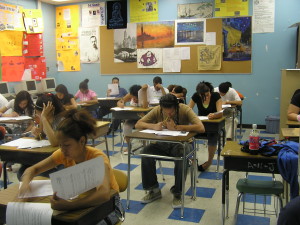
After graduating with my MSW in 2006, I took a job as an English teacher at Elizabeth High School,** which was the largest HS in America at the time (5500+ kids). My students were 65% Hispanic, 15% black, 15% Haitian and 5% other races. Many of them were the children of undocumented workers (who often worked 2+ jobs in order to scratch out an existence). The quality of the building, books, desks, supplies and instruction were all deficient. In 2007, due to a lack of space, the library of Dwyer House (where I taught) was cleared out in order to make more class room space. The books were thrown in dumpsters. I took photos of this, rescued books from the trash, and wrote an impassioned essay about it on Myspace (it was 2007).

Much like my time at Integrity House and HDAP, I poured myself into the work, bonded with those that I served and generally had a great time every single day. But the problems that my students and their families faced would not be solved by a high score on a vocabulary quiz or being able to articulate the political reasons behind the fighting in Julius Caesar. At the end of the 2009 school year, I was offered and turned down tenure. I had decided to take a job at Rutgers running the Recovery House and working at both the Newark and New Brunswick counseling centers.
In the spring of 2009, there was one student in the Recovery House who was in Recovery House for opiates. By the fall, that number had jumped to 6 (25%). In 2011, about half of the students were in recovery from opiates. I was also seeing more and more students come into the counseling centers that had problems with prescription drugs. It was even more pronounced than what I had seen a few years earlier at HDAP. I was also exposed to the devastating relationship between alcohol intoxication and sexual assaults (I’ve written about how males weaponize alcohol to incapacitate their prey). I collected data on what we accomplished and wrote about how a community could foster recovery and inspire students to academic excellence.
In 2010, I was asked to be a Trustee of the New Day Recovery Charter High School in Newark. While there were over 30 recovery high schools around the country, neither NJ nor NYC had one. From 2010 to 2012, I would leave work at Rutgers Newark at 6 pm every other Monday and head over to the New Hope Baptist Church for school board meetings that would sometimes last until 9 pm. We talked about educational policy, the recovery process, fundraising and how to get community support. We were all hardworking, excited and dedicated to this cause.
Alas, we didn’t understand the politics of the Newark School System nor were we prepared for the lack of faith and support of both the Department of Education and whatever niche covers charter schools. We were denied the charter in 2011 and then again in June of 2012. At that point, we decided to disband.
In the summer of 2011, my friend Eric Arauz recommended me for the Governor’s Council on Drug Abuse and Alcoholism (GCADA). I was mulling over issues on the school board and what I’d like to accomplish on the GCADA while flying on a plane to attend a close friend’s wedding in Sienna, Italy. I had also been reading a number of political profiles in the New Yorker (I catch up on that magazine when I travel) when I came across the story of a cabinet official who decided to get a policy degree when he was getting more involved in that kind of work. A light went off. By the time I returned to NJ ten days later, I had made an appointment to meet with Stuart Shapiro and was prepared to do whatever I needed to do to start taking classes at Bloustein that fall. During my interview, I told Dr. Shapiro that I wanted to hone my analytical skills and knowledge base in order to be more effective in the work that I was already doing.
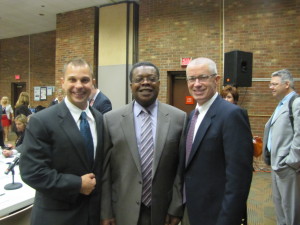
In 2012, the GCADA created the NJ Heroin and Other Opiate Task Force. We held hearings, were on the radio, made the news and eventually (after a lot of listening, reading, data gathering and discussions, some backstabbing, and several political delays) released a report on March 17, 2014. Our report addressed mezzo and macro level issues, including, but not limited to: (1) creating a recovery high school in NJ; (2) creating more recovery college programs; (3) creating a warm-line so that people could get better and more timely access to opiate treatment information; (4) mandating the prescription drug monitoring program; (5) improving treatment in county jails; (6) revising the health curriculum in public schools in order to cover the dangers of prescription drugs; (7) better training of professionals that prescribe and dispense prescription drugs and (8) the enforcement of the Mental Health and Addiction Parity Act (2008) and the Affordable Care Act (2010), which mandates that treatment for addiction must be treated the same was as treatment for cancer or diabetes. My contributions to that report represent the changes in my thinking and approach that were influenced by the Bloustein school.
I took courses on policy formation, research, economics, energy, the environment, education, health care, and the state and federal budget. The professors were learned, patient and encouraging. I have found that this course-work has pushed me towards the middle of a number of policy issues, and I try to avoid hyperbolic language and taking rigid positions. This is particularly true of issues that I think I can influence. Supporters of these issues might grow frustrated at my deliberate pace, but I have adopted the wisdom of Ben Franklin: “Half a loaf is better than no loaf.” A small policy victory today can leave the door open for bigger victories later.
It is with great pride that I can now say that I am an alumnus of the Edward J. Bloustein School of Planning and Public Policy.
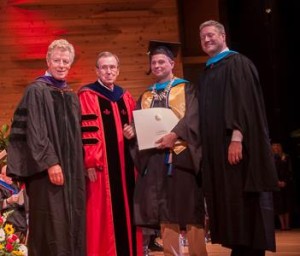
* The school is named for the 17th President of Rutgers. Edward J. Bloustein served from 1971 to 1989. He oversaw Rutgers College becoming co-ed, attracted top faculty, created the Employee Assistance Program, created one of the first Alcohol Policy Committees in higher education and generally raised the reputation of the university. All of the long-time and retired faculty that I know speak of him fondly.
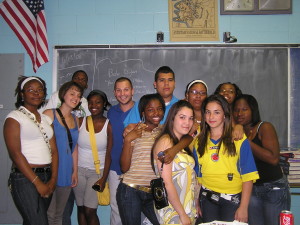
** I worked as a full-time teacher at Elizabeth and worked 2 to 4 nights a week as a substance abuse counselor at HDAP in Flemington. I did this for three years. I usually logged 700 miles a week.
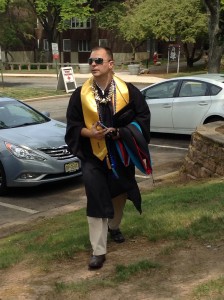
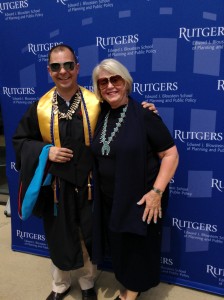
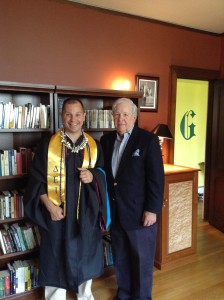
5 thoughts on “Why I Got A Degree in Public Policy”
Comments are closed.